“We are friend-raising, not fundraising.” So my first fundraising boss always reminded us.
We are friend-raising, not fundraising.” So my first fundraising boss always reminded us. He was stressing a basic maxim of development work: Fundraising is about more than getting a gift; it is about building relationships with individuals. He did not mean that we should become best friends with every donor. He wanted us to understand that a successful development program is not sustained by one-time transactions, but rather by long-term relationships.
Relationships are important not only when seeking major gifts, planned gifts, or even the smallest annual gifts from individual donors, they also have ripple effects in the pursuit of corporate and foundation support – regardless of the size or sophistication of the fundraising operation.
That’s right. No matter what the fundraising challenge, we must always remember that, ultimately, it is people who decide whether or not to support your charitable organization. It sounds obvious – and it is. However, as the fundraising profession becomes more and more data- and technology-driven, and with the often intense pressure to meet budget goals, it can be easy to lose sight of the fundamental need to create personal connections and lasting relationships. And we know that people give most generously to those they know and trust and with whom they share a common interest or vision.
In a diversified, comprehensive development program, there is no more crucial area of focus than individual giving. Here, building and nurturing relationships – and creating a shared vision – is what it’s all about. I am always struck when a nonprofit CEO or board member is surprised to learn that, year after year, in good economic times and bad, the overwhelming majority of private giving in this country (81% in 2011, including bequests) comes from individual donors. Individuals have always been the bedrock of U.S. philanthropy. That has continued to be the case throughout the current economic downturn. There are no signs of it changing in the future.
Since it is typical for 80% or more of an organization’s total contributions to come from 20% of its donors, major gifts are a key focus of individual giving. The components of most successful major gifts programs include a robust pipeline of donors and prospects, donor and prospect research, donor cultivation and management, and donor acknowledgement and stewardship. Taking a cue from my first boss, while you are establishing individual performance standards for major-gift prospect activity and dollars raised, be sure that you also prioritize development staff time for building major-donor relationships.
The motivations of individual donors can vary widely, but, especially at the major-gift level, they almost always have a personal connection with the nonprofit and share its interest or vision. Donors don’t usually respond when an organization says, “We need this.” They respond when presented with a vision that matches their values and furthers something they are passionate about. When there’s a match, the donor gets a sense of personal satisfaction, joy and fulfillment – and, often, the greater the match, the more generous the gift. The good feeling an individual gets from giving can also be motivation in itself, particularly among repeat donors – reinforcing another fundraising adage that “Your best donors are your past donors.”
When determining what resources individual giving should command in your organization, it is important to recognize that the benefits of a successful, major-gift-focused individual giving effort extend beyond financial contributions. The money is important, of course. But individuals who are engaged with your organization and share your vision can contribute creative talents, insights and ideas to more effectively advance our nonprofits’ missions and visions. They can be board members. They can also extend your organization’s reach and involve more supporters; they can make new friends and create trusted advisors and build the next generation of philanthropic activists. As a bonus, these same individuals are often the decision makers in corporations and foundations.
So the next time you or your colleagues are following best practice by reviewing research and contact reports and strategizing your next moves, heed the wise words of my first fundraising boss. Put the relationship with your donor or prospect before your desire for their gift and create a compelling shared vision; then you will be well on your way to both meeting your fundraising goals and building a sustainable long-term program.
The Phoenix Philanthropy Group is expert in the development and enhancement of individual giving and major gifts programs. And we always value our relationships. To learn more about our services and how we can help your organization be more successful, please visit phoenixphilanthropy.com.
